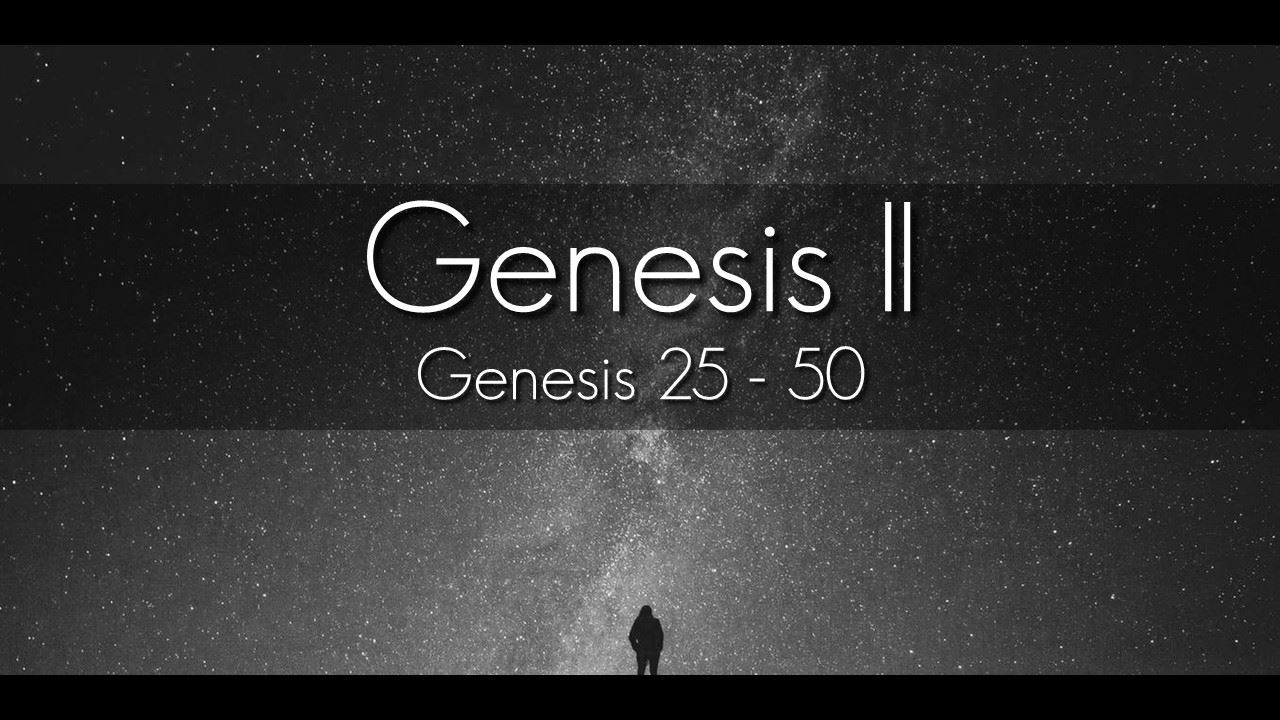
Genesis II: Lesson #1 Genesis II: Lesson #2 Genesis II: Lesson #3 Genesis II: Lesson #4 Genesis II: Lesson #5 Genesis II: Lesson #6 Genesis II: Lesson #7 Genesis II: Lesson #9 Genesis II: Lesson #10 Genesis II: Lesson #11 Abraham, Isaac, and Jacob. These three names are strung together multiple times in the Bible to signify the patriarchs of Israel, God’s chosen people in the line of the covenant promise that God made to Abraham (Genesis 12:1–3). God told Abraham He would make of him “a great nation.” With the birth of Abraham’s son, Isaac, God’s promise began to be fulfilled. Then Jacob was born to Isaac and Rebekah. Through Abraham, Isaac, and Jacob, God was sovereignly forming His chosen people (Romans 9), who would one day produce the one predicted in Genesis 3:15, the one who would defeat Satan—the Messiah, Jesus Christ. Quick SketchJacob spends his youth living as a nomad in the land of Canaan with his parents, Isaac and Rebekah, and his twin brother, Esau. But rivalry and deception involving Esau forces Jacob to flee for safety to Rebekah’s family in Haran. While Jacob is away, he marries two wives and has two concubines, all of whom give him a number of children, including 12 sons. These 12 sons would go on to form the 12 tribes that make up the Jewish nation of Israel, which is named after their father, Israel. The Big PictureJacob trades for Esau’s birthright—Genesis 25:27–34In Bible times, the birthright of the eldest son was significant. When the father died, the eldest son inherited twice that of other sons and assumed the authoritative position of head of the family. Jacob’s story opens with his brother Esau returning from a hunting trip, starving for food. Jacob proposes a trade: the stew he is cooking for Esau’s birthright. Esau’s ready acceptance shows how little he values his favored position of eldest son. It also shows what little consideration Jacob has for his personal integrity. This trade is not binding, but it does reveal the hearts and characters of the two brothers. Jacob supplants his brother—Genesis 27:1–40Years later, believing he is dying, Isaac intends to give Esau the blessing of the firstborn. But Rebekah wants the blessing for Jacob—perhaps because she remembers God’s pronouncement, before the twins were born, that “the older shall serve the younger” (25:23), and perhaps because she favors Jacob over Esau. Rebekah therefore urges Jacob to pretend to be his brother. Thus Jacob deceives his now-blind father and receives Esau’s intended blessing. When Isaac learns what had happened, he allows Jacob’s blessing to stand and confirms the passing of the covenant promise to Jacob. Jacob meets God on the way to Haran—Genesis 27:41–28:22No wonder “Esau hated Jacob” and wanted to kill him (27:41). Fearing Esau’s reprisal, Rebekah asks Isaac to send Jacob back to her family. On the way to Haran, Jacob has an encounter with God. In a dream, Jacob sees angels ascending and descending on a ladder from heaven to earth. Jacob is stunned by the vision and makes a bargaining pledge to God: “If God will be with me…then the LORD shall be my God” (28:20–21). This is the beginning of Jacob’s growing trust in the presence and protection of God. Jacob works for Laban—Genesis 29:1–31:55Jacob providentially finds Laban, Rebekah’s brother and his uncle, and agrees to work for him for seven years for the hand of his youngest daughter, Rachel, in marriage. Yet on Jacob’s wedding day, Laban switches daughters, and Jacob ends up married to the elder, weak-eyed Leah. Jacob then agrees to work for an additional seven years to marry Rachael. Leah and Rachel struggle for Jacob’s love and attention and give their maids to Jacob for wives with the hope of producing more children. The end result of this domestic disaster includes 12 sons born to four different women. During this same time, Jacob has been keeping Laban’s flock and herds. God blesses Jacob’s every effort by greatly increasing the herds, bringing great profit to Laban. After working for 14 years for Laban’s two daughters, Jacob decides to leave Haran and agrees to Laban’s terms to keep only a certain color of animal as his wages rather than take all of Laban’s animals. All the others would be Laban’s. With this request, Jacob puts himself entirely in the hands of God, for only God could determine which animals would be Jacob’s and which would be Laban’s. Jacob returns home a wealthy man—Genesis 31–32By the end of six more years, God had transferred much of Laban’s wealth to Jacob in spite of Laban’s greed and attempts at deception. At last it is time for Jacob to return home. God reassures Jacob of His presence and directs Jacob to take his family and depart. Even though God guarantees Jacob His protection for the trip, Jacob still fears the reprisals of his brother Esau upon his return. Hoping to appease his approaching brother, Jacob sends 550 animals ahead of his family. This is a masterful strategy, but reveals Jacob’s faltering attempts to believe that God would somehow intervene. The night before Jacob meets with his brother Esau, Jacob is involved in a unique, nightlong wrestling match with a “man” whom Jacob identifies as God in human form. Jacob refuses to release his hold on his divine opponent until the Lord blesses him. The Lord then gives Jacob a new name, Israel, meaning “he struggles with God.” When at last Jacob meets Esau, the two brothers embrace and weep with emotion after 21 years of troubled separation. Jacob journeys to Egypt—Genesis 35–49After Jacob returns home and is reunited with his father, Isaac, yet another famine occurs. But earlier, God had already sent one of Jacob’s sons, Joseph, to Egypt. Joseph went there as a slave, but then became a ruler elevated to second only to Pharaoh. Joseph invites Jacob and his entire family of 66 persons to come to Egypt and be spared from the devastating famine. The PortraitGod gave His blessings to Jacob knowing full well his shortcomings of lying, deception, and manipulation. However, as Jacob was forced out of his safe environment by his own deception, he began to seek God’s provision. By the end of his life, Jacob was unwilling to do anything without asking God’s direction. Due to this complete transformation, God changed Jacob’s name from one that meant “supplanter” or “deceiver” to one that meant “God fighter” or “he struggles with God” (Genesis 32:28). Life Lessons from JacobThe end never justifies the means—God told Rebekah that Jacob would receive the blessing over his brother Esau, but she failed to wait for God to intervene when it appeared Isaac would bless Esau instead. Rebekah chose to use Jacob to manipulate matters and paid a high price, never seeing either son again before her death. God never needs our help to accomplish His will. Deception begets deception—There is always a consequence to sin. Jacob’s deception made it necessary for him to flee for his life and work for many years for an equally deceptive, conniving relative. Don’t count on God to bail you out of the consequences you reap when you deceive others. Spiritual maturity is a long journey—Early in life, Jacob began relying on tricks and his own schemes to get what he wanted. At the end of his days, Jacob acknowledged God’s hand in all of life and even encouraged his son Joseph to wait patiently and allow God to bring him back to the land of his fathers (Genesis 48:21). So, set aside conniving and deceit. Seek to accomplish your spiritual journey from self-reliance to God-reliance quickly and with less heartache than Jacob experienced. Jim George, 10 Minutes to Knowing the Men & Women of the Bible (Eugene, OR: Harvest House Publishers, 2010). | If you are wanting to do a particular passage or book study and can't find it, feel free to email me at josh@joshhunt.com21 Laws of Discipleship -- the book -- |


















